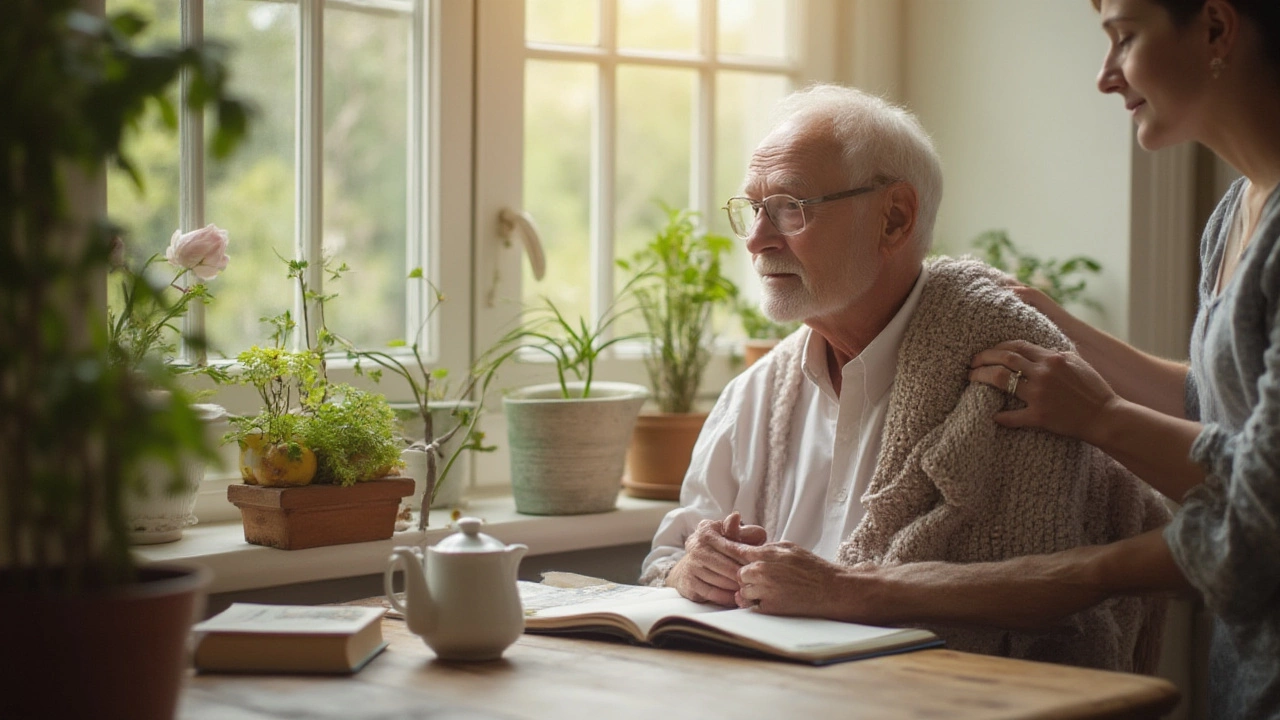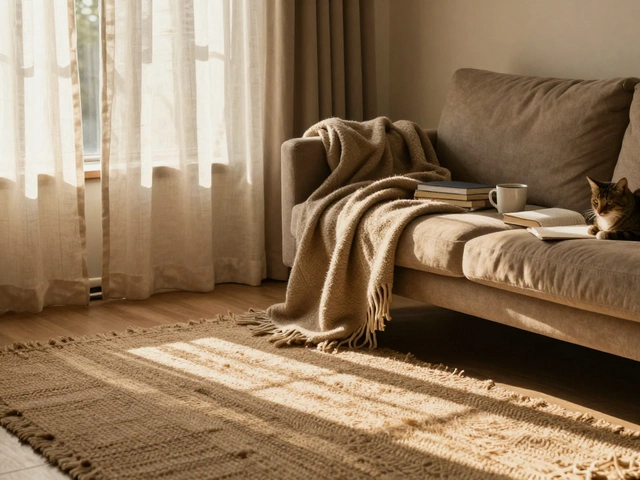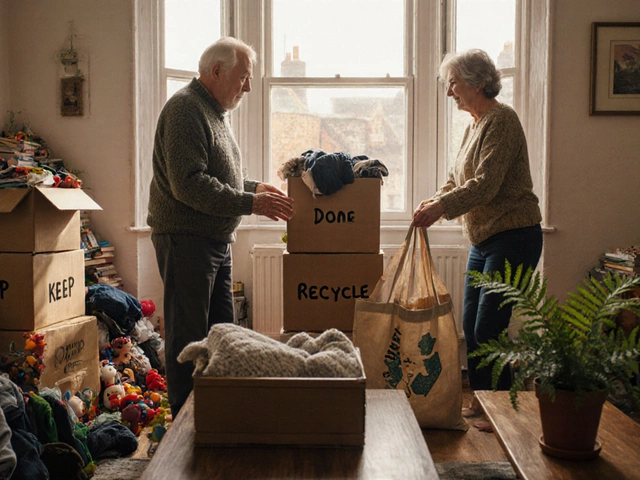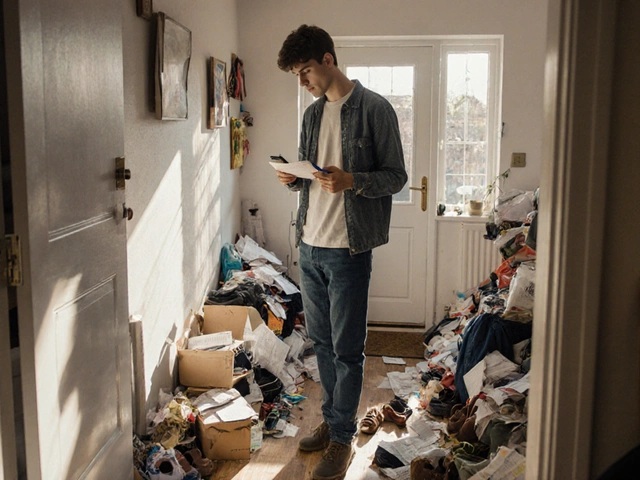I read something wild the other day: a New Zealand study found that the average Kiwi spends over seven hours a day staring at screens, but less than twenty minutes talking face-to-face with friends or family. Isn’t that just a little bit alarming? With life getting busier, more connected online but weirdly lonelier in person, everyone seems to be quietly struggling with their own mental fog. The secret sauce? It might just be tucked inside three little words that totally flip how we approach feeling good: Connection, Coping, and Care. These ‘3 C’s’ aren’t magic, but they are practical—and they can make a real difference.
Understanding the 3 C's: Why They Matter
The “3 C’s of mental health”—Connection, Coping, and Care—pop up everywhere these days, from wellness blogs to workshops at your local community hall. They sound simple, but dig just a bit deeper, and there’s real science behind each one. Connection is how you bond with others (and, yes, yourself), Coping is about what you do when life throws curveballs (because it always does), and Care covers those everyday habits that keep your brain and body ticking along smoothly.
This framework isn’t a new-age trend. Clinical psychologists in New Zealand started using these pillars over a decade ago in group therapy settings, because people needed tools they could remember—and actually use. Mental health isn’t always about treating a crisis. It’s about planting seeds now so strong roots grow for the tough moments later. Even the World Health Organization’s guidelines back this up: people who focus on these three areas are far more likely to feel happier and less stressed, no matter what life flings at them.
Tossing all three into your daily routine takes some getting used to, but it gives your mental fitness genuine staying power. Think of it a bit like brushing your teeth—small, regular actions, even when you can’t see the instant effects, stop things from rotting beneath the surface.
Connection: Humans Need People (and More Than Just a Like)
If you imagine building a house, connection would be the foundation. Humans are hard-wired to crave real bonds; that’s not just me rambling—MRI studies show our brains react to social exclusion with actual pain signals, the same as when we hurt ourselves physically. Loneliness is as risky as smoking 15 cigarettes a day, according to a 2018 meta-study published in the journal ‘Perspectives on Psychological Science.’ That hit me like a ton of bricks.
So what counts as connection, really? It’s not just friends or family (though those are gold). Spending five minutes chatting to your local barista, smiling at your neighbor, or even talking to your pet—my cat Willow is an expert listener, by the way—can give your brain a much-needed oxytocin bump. Even introverts benefit, though solo time is just as vital for them. Researchers at the University of Otago discovered that people who reported at least three genuine social interactions a day (however small) scored far lower on anxiety scales than people who didn’t.
If COVID taught Wellington anything, it’s that you can’t binge-watch your way through isolation forever. Apps, texts, and Zoom calls help, but nothing beats showing up for someone, or letting someone show up for you. Here are some easy ways to build real connection, even when you’re feeling shy:
- Start with a message: Drop a meme or quick “How’s your Monday?” to a friend.
- Join an interest group: Painting, walking, book clubs, running—whatever floats your boat.
- Volunteer: Helping someone else gets you out of your own head.
- Build a small ritual: Saturday coffee with a neighbor, weekly calls with your mum.
- Think pets count: Seriously, talking to cats is proven to boost moods (yes, even when they ignore you).
If connection gets tough, remember, you don’t have to spill your soul. Even regular, silly, or small talk keeps those neural networks happy. You never know, the next “hey” might lead to your new best mate—or at least a good laugh.

Coping: Building Real-World Resilience
Coping isn’t about pretending everything is fine when it’s not. It’s more like pulling on a raincoat before you step out into a Wellington southerly; you can’t stop the weather, but you can get better at dealing with it so you don’t get soaked. And you don’t have to do it alone. Around 35% of New Zealanders reported high stress in 2022, so chances are, half the people in your life know exactly how you feel.
Effective coping comes in two types: proactive (planning or taking small steps before things get rough) and reactive (what you do in the moment stress hits). Psychologists suggest starting with three simple tools:
- Breathing exercises: Try ‘box breathing’—inhale for four counts, hold for four, exhale for four, hold for four. Repeat.
- Reality-checking: Ask yourself, “What facts do I know, and what am I assuming?” This stops catastrophizing in its tracks.
- Distraction magic: Let your brain reset with a walk, funny video, or five minutes doodling—backed by studies from the University of Auckland, this helps your brain shift out of panic mode into calmer thinking.
For longer-term coping, experts swear by routines—bedtime rituals, exercise, or setting daily intentions. People who write things down (gratitude lists, worries, plans) are proven to bounce back faster during tough times. Check out these numbers below for a hint at how simple habits help:
| Coping Strategy | Stress Reduction (%) | Study (Year) |
|---|---|---|
| Writing daily reflection | 24 | Otago, 2022 |
| Box breathing | 19 | Victoria Uni, 2023 |
| Taking nature walks | 33 | Massey, 2021 |
Coping skills aren’t one-size-fits-all. Mix and match, keep what works, and ditch what doesn’t. If you find yourself circling the drain, reach out—it’s much less dramatic than it feels, and there’s zero shame in asking for help.
Care: Everyday Choices Build Your Mind
This one gets brushed aside the most, but it’s way more than bubble baths and green tea (though those don’t hurt). Care is about how you treat your body, because what happens with your sleep, nutrition, movement, and downtime directly shapes your mental energy. Skipping breakfast, doom-scrolling until midnight, or ignoring your need for rest will chip away at your mood, focus, and confidence.
A 2023 survey of Kiwi adults revealed a strange truth: half of participants thought regular exercise was for fitness nuts only, while study after study shows it’s as powerful as antidepressant pills for mild depression. Here’s a quick breakdown of some self-care ideas that aren’t Insta-filtered:
- Set a sleep window: Go to bed and wake up within the same 30-minute window—even on weekends. Your mood will thank you.
- Eat with rhythm: Three meals a day (don’t skip breakfast), protein with each meal, and hydrate like a plant.
- Move your body: Dance, stroll, garden, jump, do yoga—just 20 minutes can boost serotonin and dopamine levels.
- Protect downtime: No guilt for saying no or switching off your phone.
- Quit comparison: Social media is a highlight reel, not the daily grind.
Hate running? Don’t run. Love baking? Get messy in the kitchen. Care is about finding a routine that fits—so you stick with it even when you’re tired or stressed. The key is showing yourself the same kindness you’d expect from a best friend or your favorite aunty. You’d be shocked how much your brain loves a bit of gentle structure.

Simple Ways to Put the 3 C's into Practice
Here’s the thing: mental health is ordinary. You don’t need a fancy retreat, new journal, or week-long holiday in Queenstown (though if you get one, I’m jealous). What matters is sticking with small moves you actually want to repeat. Layering one ‘C’ at a time may be less daunting if things feel overwhelming.
- Start where you are: Is your social energy on zero? Spark up a quick text instead of meeting in person. Tight budget? Most self-care practices are free.
- Stack your habits: Pair a new routine with something you already do. For example, stretch every time you brush your teeth.
- Track how you feel: Jot down mood, energy, or stress each night. You’ll spot patterns and tweak things that aren’t working.
- Celebrate small wins: Noticed you’re snapping less or sleeping better? That’s your effort paying off.
- Ask for help early: Sometimes the bravest thing you can do is tell someone you’re struggling—long before reaching breaking point.
I started by walking Willow the cat (yes, she’s leash-trained; yes, we get looks) every morning. It’s connection (she’s company, even if distracted by birds), coping (fresh air clears my racing thoughts), and care (sunlight wakes me up). Tiny daily acts are much more powerful than you might think, especially when life gets messy. Remember, nobody has their stuff totally together, but everyone can take small steps to feel just a bit better.







